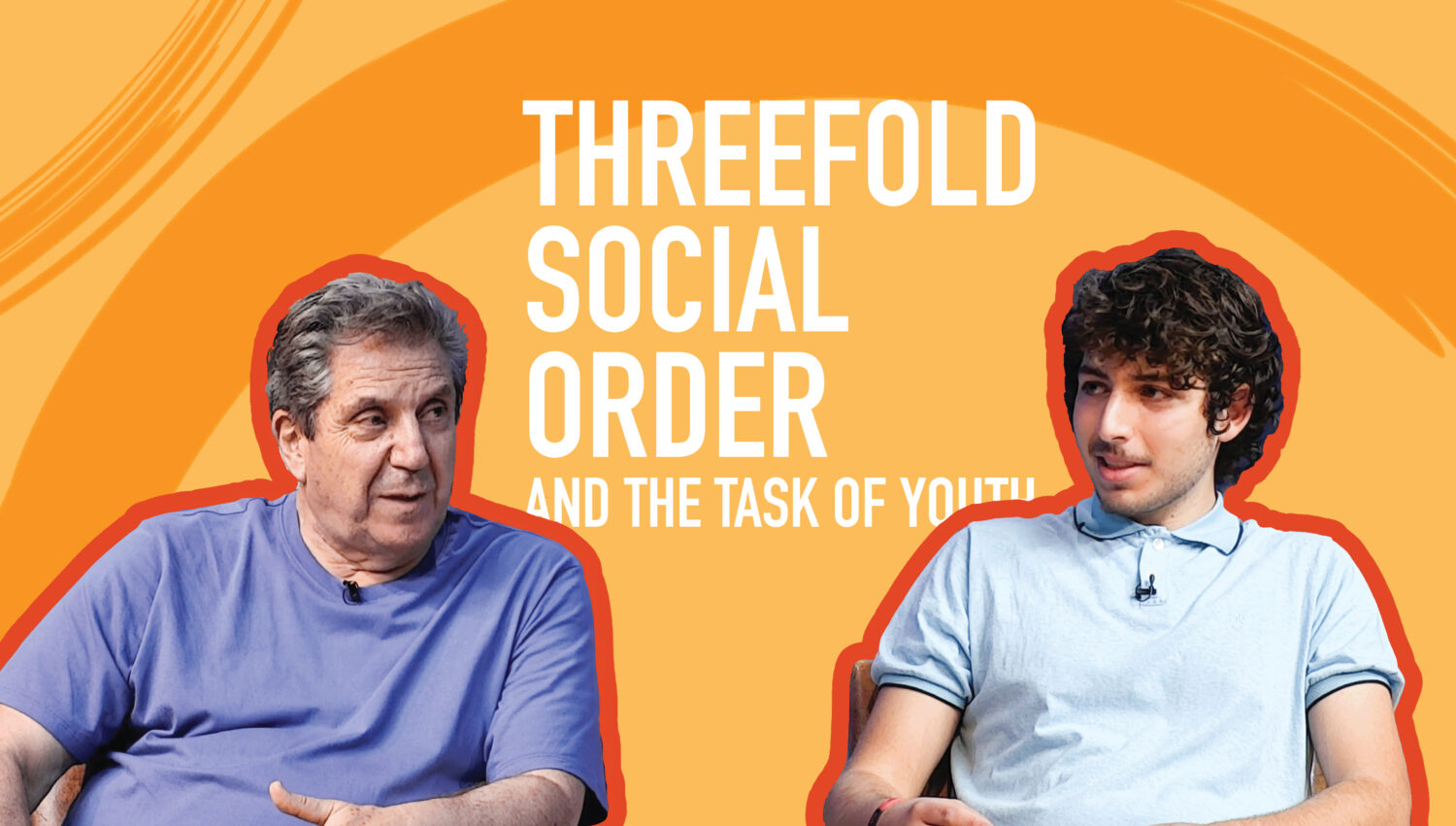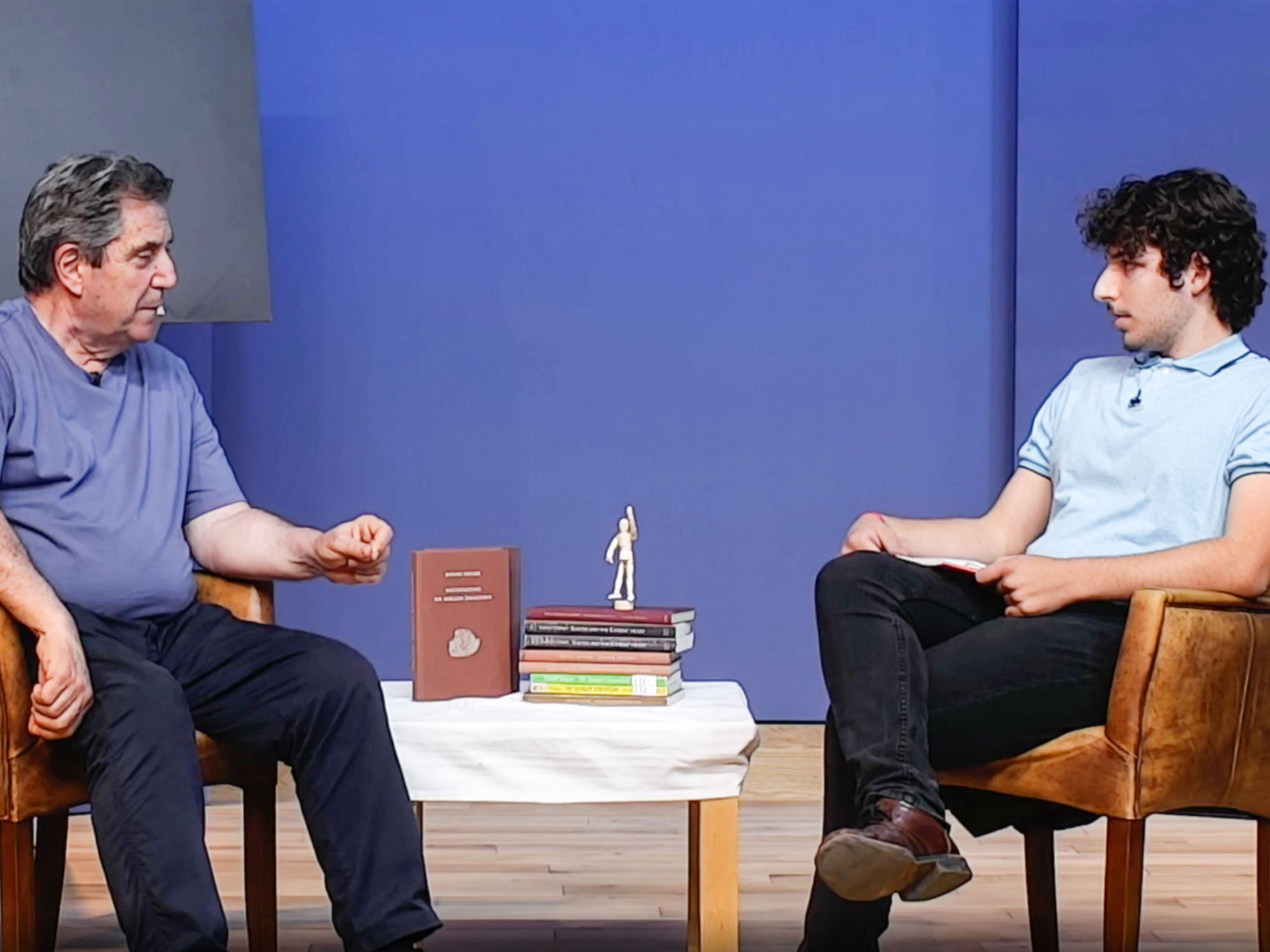Social threefolding is a core theme in anthroposophical knowledge of the self and the world. It cannot be implemented – rather, it is like a pair of glasses through which social processes can be understood. Joan Melé spoke to Xavier Moretti about how the social world can succeed and how we can grow from it.
How has social threefolding enriched your life?
Social threefolding has taught me to realize that we are all connected and that every decision we make affects us all and impacts the earth. In other words, for me, the threefold structure is neither a formula nor a method, but a way of looking at the world.
Are there prerequisites for the success of social threefolding?
Theoretically, success is possible everywhere, but those involved need to prepare for it. Sometimes Waldorf schools ask me: «Can you help us implement social threefolding?» And I say, «If you put it that way, I can’t.» You can’t just apply it. I can only teach how to observe these organic processes. When people come together in a community, they form a human organism. Every human being is a cell of this organism. Therefore, a successful threefolding requires great work on self-knowledge. If there is no permanent work of self-knowledge, we fail – it is then only an attempt to apply a formula, and that won’t work. Today it is necessary to penetrate the idea of social threefolding, that is, to gain knowledge of the human being so that it may bear fruit in the social world. It only needs the will. What isn’t possible, and what today’s world is trying to do, is to make everything quick and easy. But it is neither quick nor easy to do – it requires perseverance and work.

The knowledge of social threefolding is useful: for a learning group, for a school, for a company, or for a country. When we come together, we form an organism. Therefore, we need to understand what makes this organism sick and what makes it healthy. There are three dimensions on this path of knowledge: the spiritual part — you are a spiritual being with a purpose in life. But your life’s purpose isn’t only yours, and you must fulfill it in relationships with others. So, you must learn to relate to them. Finally, you have a body that has needs that have to be met — the earth meets those needs. So, there are three spheres: the individual-spiritual sphere, the relational sphere, and the realm of the earth. In any organization, one must respect these three dimensions. If a person’s individuality in an organization isn’t respected, problems arise. If relationships aren’t worked on, problems arise. If the earth or physical needs aren’t respected, problems arise.
If someone comes up with the idea of bringing social threefolding into a community, but others don’t clearly understand it, can it still work?
That will never work. Even if the person who brings in the idea understands it very well, a transformation only works through and with others. If the social organism perceives this idea as a foreign object, it will reject it. It must be a joint effort.
What role does money play in the threefold social organism?
The first thing to understand is that money isn’t an object, but that money depicts a relationship between people. Money is useless if there is no relationship. There are three ways of using money: buying, saving, and donating or giving. Of course, this has to do with social threefolding because we apply ‹solidarity› or ‹fraternity› in the economy as an ethical standard for a healthy threefold social structure. ‹Solidarity› is a very misunderstood word because there are people who say: «Solidarity means that you have to love each other like brothers and sisters.» But solidarity is an economic concept because, in the economy, there is the so-called principle of interdependence. Everything I ate today was grown, cooked, and served by others. What I need to live is created by the work of others. And because we are interdependent, we must support each other. Solidarity could mean mutual support or cooperation. One way to support each other is to use money consciously. Solidarity doesn’t exist by itself: those who have more should pay more. That is one aspect. But solidarity means using money consciously. I can’t buy clothes from a company that I know exploits people or pollutes the environment, etc. Living as brothers and sisters means thinking about others: how will your decisions affect them? Therefore, an economy of solidarity leads to the fact that one no longer talks about price but about value: not how much money something costs but the value of it. For the everyday observance of this reality, we don’t need grand theories but questions. Before you buy something: What am I buying? Why am I buying it? And where am I buying it?

What is the role of youth in this context?
The first step would be to understand that work is something spiritual. ‹Spiritual› means having certain skills and developing them through work and bringing them into the world. That’s why I tell young people: «Work on your self-knowledge. Find out who you are and what you can do, and when you’ve figured that out, say what you want to give to the world so that the world becomes a better place thanks to you.» What you do and what you get paid for must be two independent things. Don’t look for a job because of the money, but because you see that you can develop as a person there. And second, pay attention to how you use your money because others depend on you. We live in a time that wants to seduce us into easy work – little work, lots of money. But my experience is that people who make a lot of money doing nothing aren’t happy. For me, having the goal of being useful to others is the best meaning of life.
Translation Monika Werner
Title image Joan A. Melé on the left and Xavier Moretti on the right in conversation; Screenshot.









